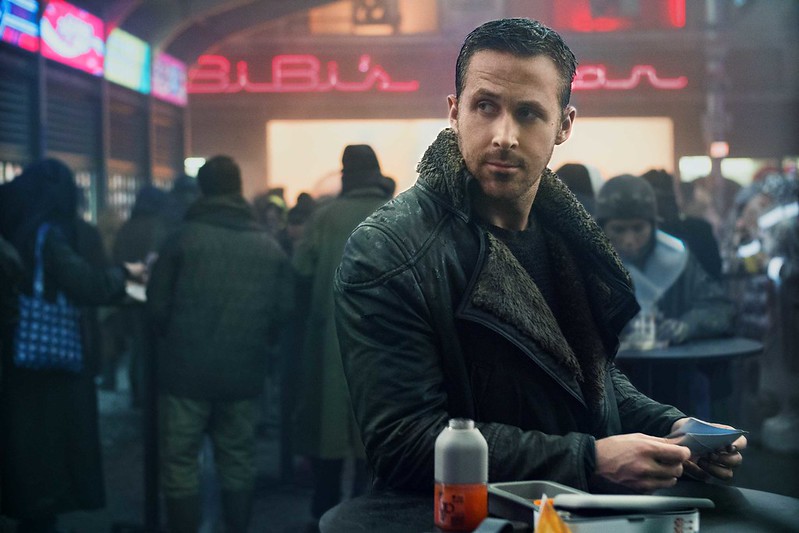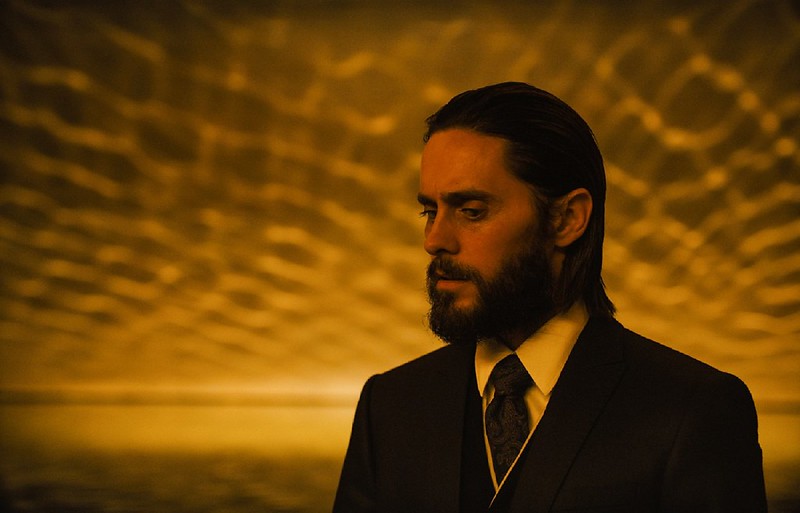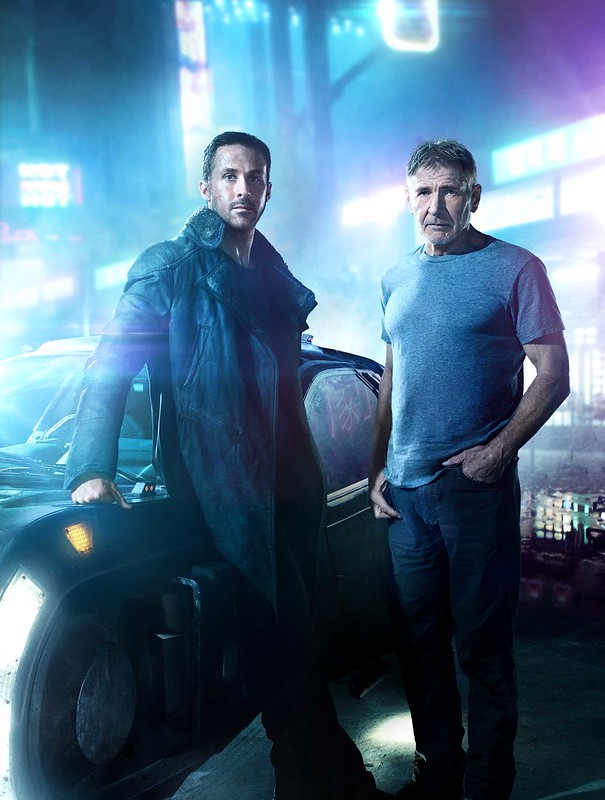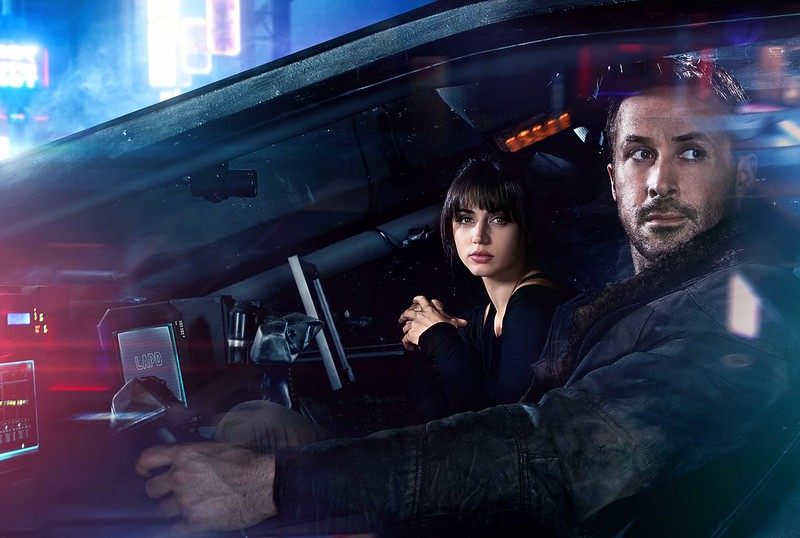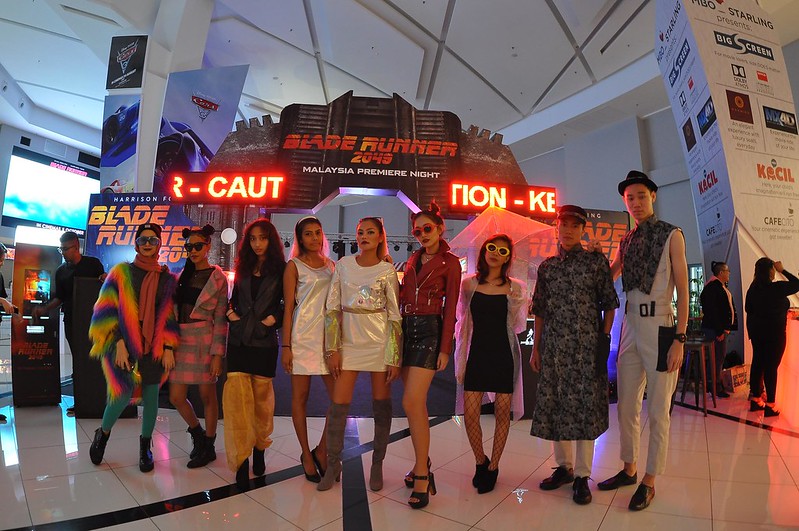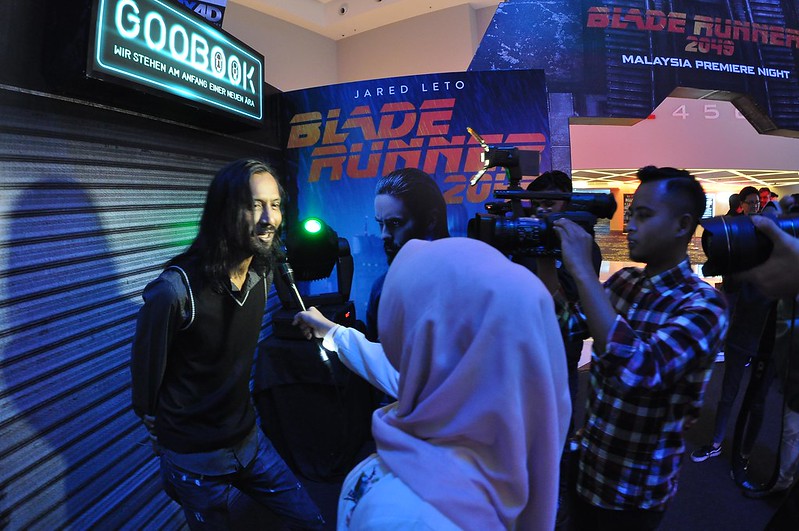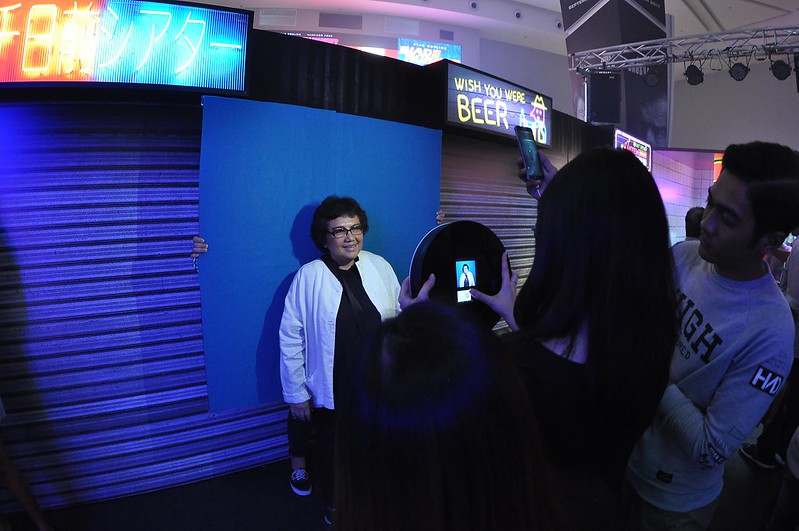Sci-fi, action-adventure film Blade Runner 2049, directed by Denis Villeneuve, is a sequel to Blade Runner (1982). It follows Officer K (Ryan Gosling), a replicant (a type of biorobotic android) who works as a blade runner who is tasked, ironically, to execute, or ‘retire,’ older models of his own kind. In doing so, he inadvertently stumbles upon a well-kept secret which leads him to seek out Rick Deckard, a role reprised by Harrison Ford, an ex-blade runner who has inexplicably gone into hiding for 30 years.
More Human than Human
Set not so far in the future, in a dystopian Los Angeles, we see a frightening version of a world we know – uninhabitable and ridden with poverty and sickness despite multiple breakthroughs in technological advancements. We see skylines swallowed by smog and barren wastelands which expand over hundreds of acres. Fresh food is nonexistent and people live off a genetically modified diet sold in vending machines.
Jared Leto portrays Niander Wallace, a scientist with a god complex who has successfully created a newer and more advanced model of Replicants that are allowed to roam the planet. They can walk freely on Earth because they are completely obedient to the system that produces them. Wallace’s right-hand woman, a replicant named Luv (Sylvia Hoeks), is cold, calculating, and completely devoted to him. Ana de Armas plays Joi, an illusive dark-haired beauty and Officer K’s love interest – a flicker of hope in the face of a forcefully dark world.
Denis Villeneuve’s Blade Runner 2049 addresses our fears of the rise of Artificial Intelligence
“Blade Runner 2049 was many levels above the original film. The storyline itself was captivating – I can always predict the endings of movies that I watch but this one just threw me off my feet with that little twist! It was simply amazing,†exclaimed renowned local Malaysian movie director Datin Paduka Shuhaimi Baba at the Blade Runner 2049 movie premiere.
As a huge fan of the first Blade Runner movie, director Villeneuve set out to create a new world in 2049, one which honours the original while simultaneously standing on its own two feet. 2049’s L.A. is drenched in the evidence of drastic climate change – it is imprisoned by a Sea Wall protecting it from dramatically high sea levels. In the same way that the first film predicted what the near future would look like, Blade Runner 2049’s portrayal of a grim future hits uncomfortably close to home.
The film forces audiences to confront what it means to live in a world where modern technology might overtake our human capabilities. We are already used to discussions around Artificial Intelligence. A recent example is the news of Google’s robots developing their own language – one unintelligible to humans – causing panic among A.I. experts who promptly shut them down. How ready will we be for the next breakthrough? What if our greatest innovations also become humankind’s greatest threat?
Malaysian actor Alan Yun had lots to say about the film. “2049 was more realistic than I expected it to be! It is a good reminder to us that technology is developing whether we like it or not – the world is rapidly moving towards automation. It’s also a little scary to see what our future may possibly look like the world of 2049. I never thought about technology in this way before, hats off to director Villeneuve! An impressively shot movie with a memorable soundtrack, I definitely recommend this movie to everyone.â€
In the same way the first film explored themes of memories and identity, Blade Runner 2049 encourages its characters to explore their identities and question the reason of their existence. By extension, Villeneuve incites audiences to consider how free will can define our humanity, regardless of if we are born or built.
Blade Runner 2049 is set to hit the theatres in Malaysia on October 5th.
For more information on Blade Runner 2049, please visit www.facebook.com/SonyPicturesMY


